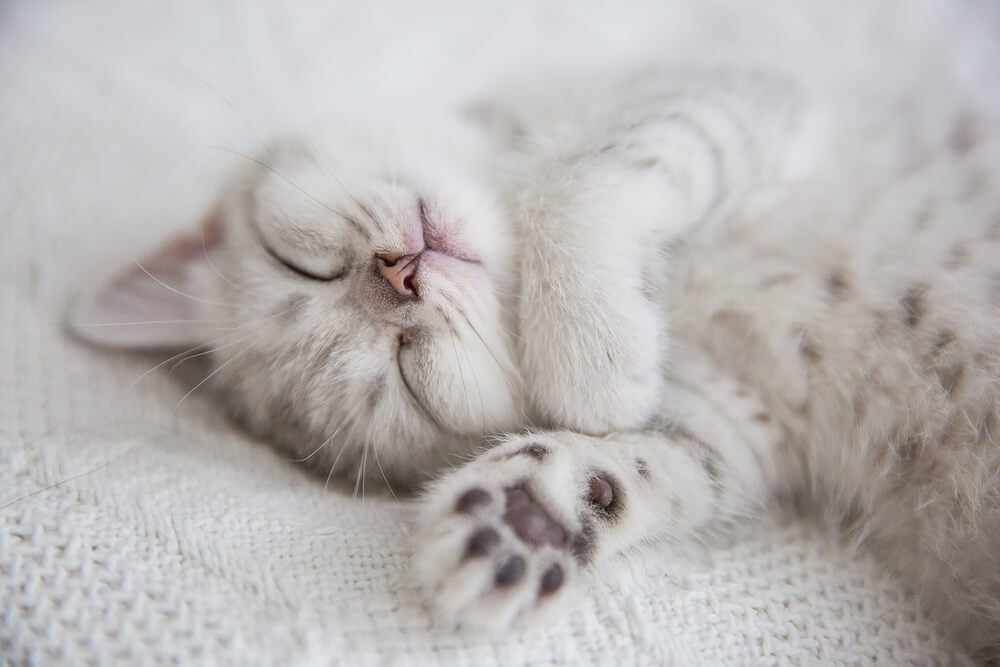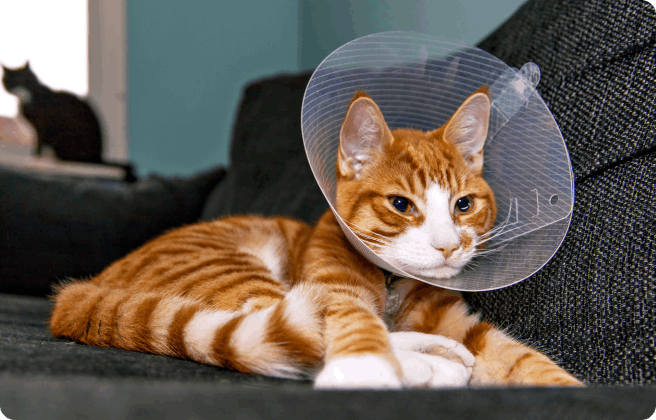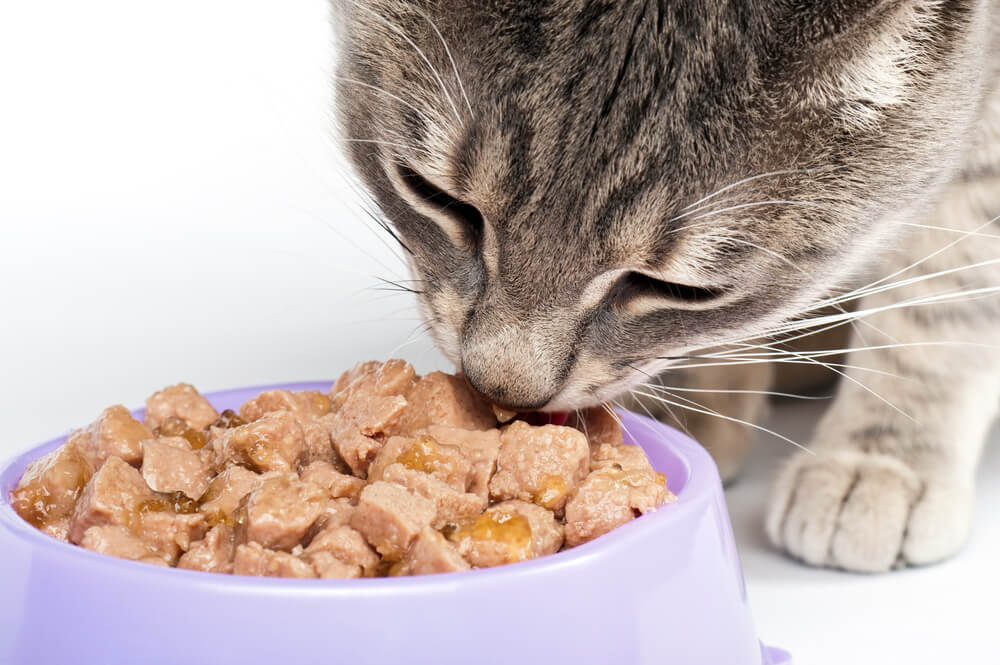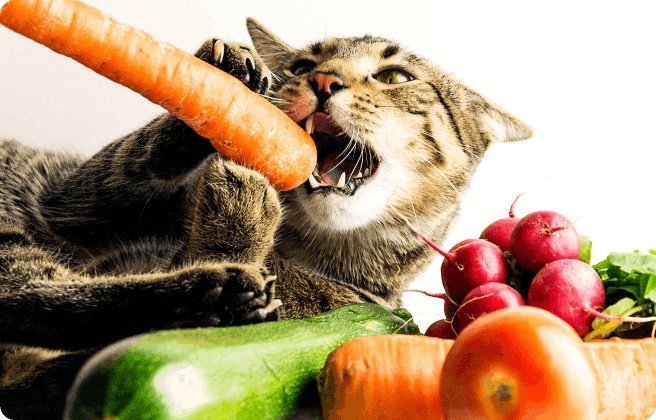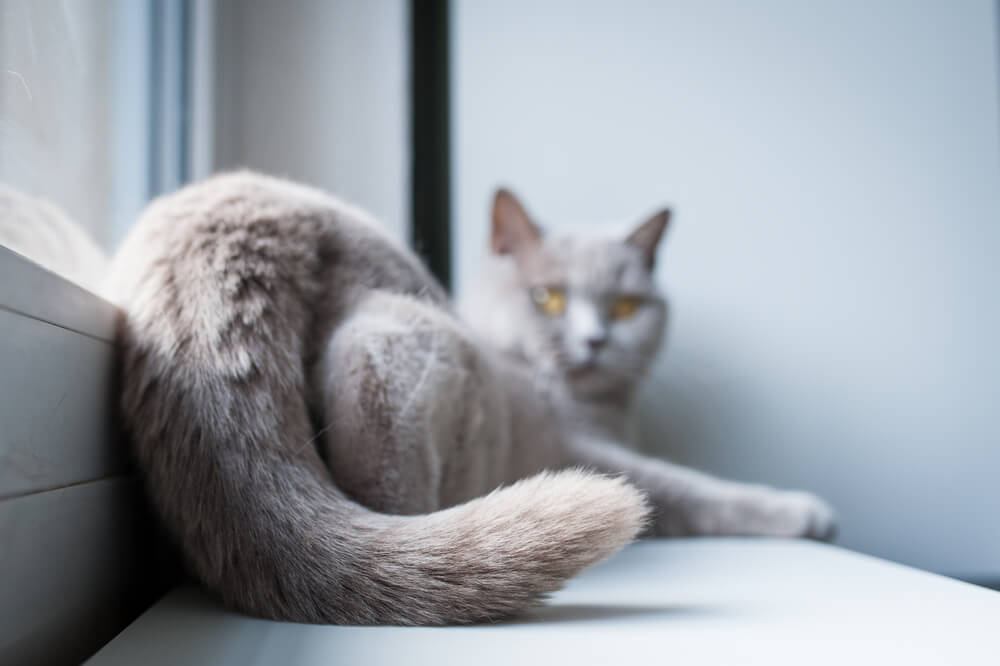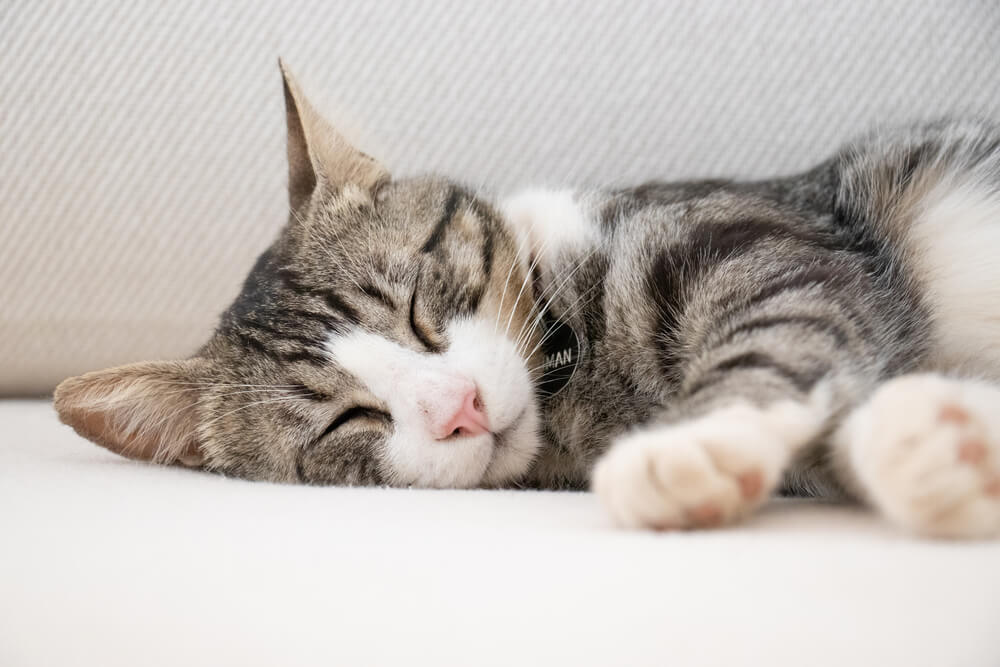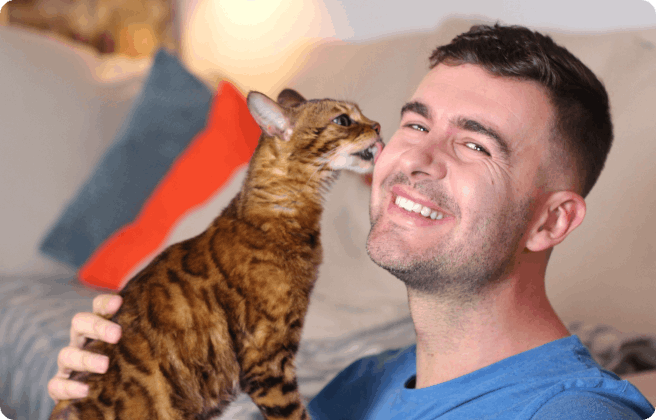
In the vast majority of cases, your cat licking you is nothing to worry about. In fact, it might even be a sign your pet is forming a close bond with you. To understand why, it helps to know a little about cats and their habits.
Cats are clean creatures
Next time your cat is curled up next to you on the sofa, take a look at what they’re doing — if they’re not fast asleep, there’s a decent chance they’ll be grooming themselves. Cats spend a good portion of their days cleaning and preening, up to 50% of their awake hours in some cases. It’s no wonder they look so presentable all of the time.
Given it’s something they do so much, their bodies are extraordinarily well adapted to the task. If you’ve ever been licked by a cat, you’ll have probably noticed their tongue feels almost like sandpaper and that’s because they’re covered in little spines called papillae, which are made of the same resilient natural material as human fingernails. We have these structures on our tongues too, but they’re nowhere near as prominent. For cats, the spiky papillae help perform a number of crucial functions, from detangling fur and removing potentially harmful parasites to redistributing the natural oils that act as waterproofing.
Licking is instinctive in cats
Just as mothers will lick their kittens to keep them clean and teach them how to do it on their own in the future, grown-up cats will groom each other when they’re particularly comfortable with one another. This is called allogrooming and it’s a social behavior common to many species of animals and birds. As well as being an act of generosity, this mutual cleaning also helps to establish a group scent through the transfer of saliva and makes trusted members of the pack easily identifiable through a single whiff.
So, when your pet starts to lick you, it could be a sign they feel safe around you and see you as part of their social group. Rest assured, it doesn’t mean they think you need to hit the shower!
Cats lick to get your attention
At the same time, a few licks of your hand could just be a gentle means of getting your attention, similar to scratching or meowing. Is it dinner time? Does their water bowl need filling up? Or do they simply just want a little stroke behind the ear?
Overlicking is a sign of stress
OK, so a little bit of licking is generally not a bad thing, but what happens if it starts to border on compulsive?
Well, in certain situations, overlicking can be a sign of stress in a cat, whether they direct this at you or their own body, sometimes to the extent they leave bald patches or sores on themselves. Keep an eye out for other signifiers of stress as well, including:
- Poor appetite and weight loss
- Excessive eating and weight gain
- Vomiting or diarrhea
- Hiding away or jumpiness
- Going to the toilet outside of the litter tray
- Furniture scratching
- Reluctance to play, go outside or come back inside
- Aggressive body language or behavior
If you suspect your cat is stressed or anxious, it’s important to take them to the vet, who will be able to offer advice and hopefully root out the cause of their newfound lack of confidence.
At the same time, keep an eye out for changes in your cat’s environment that might be a source of worry. Have you recently had new guests staying over in the house or fireworks going off nearby? Perhaps the neighbors have recently got a new cat or dog that’s throwing its weight around outside.
Once you’ve established potential reasons behind your pet’s lowly demeanor, you can go about making alterations to their living space that will have them feeling safe at home once again.
We uphold the highest editorial standards when creating the authoritative content pet parents rely on and trust.
Every piece of clinical content on the Cat Food Advisor is reviewed by our certified Veterinary Advisory Board, which consists of licensed veterinarians and medically certified specialists.
Our reviews are completely independent; we are not paid by any pet food company to promote their products favorably. We do not accept money, gifts, samples or other incentives in exchange for special consideration. For more information see our Disclaimer & Disclosure page.




